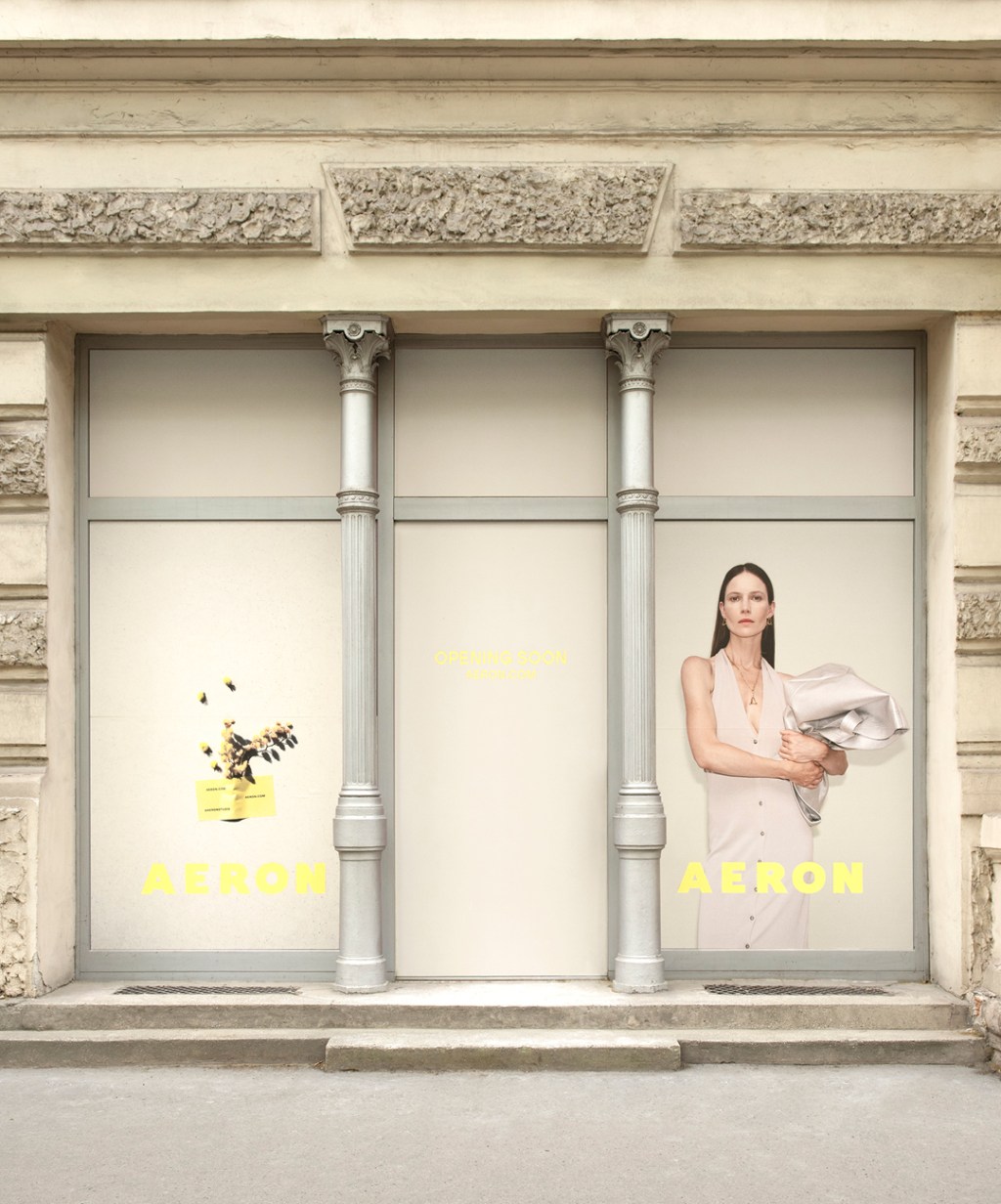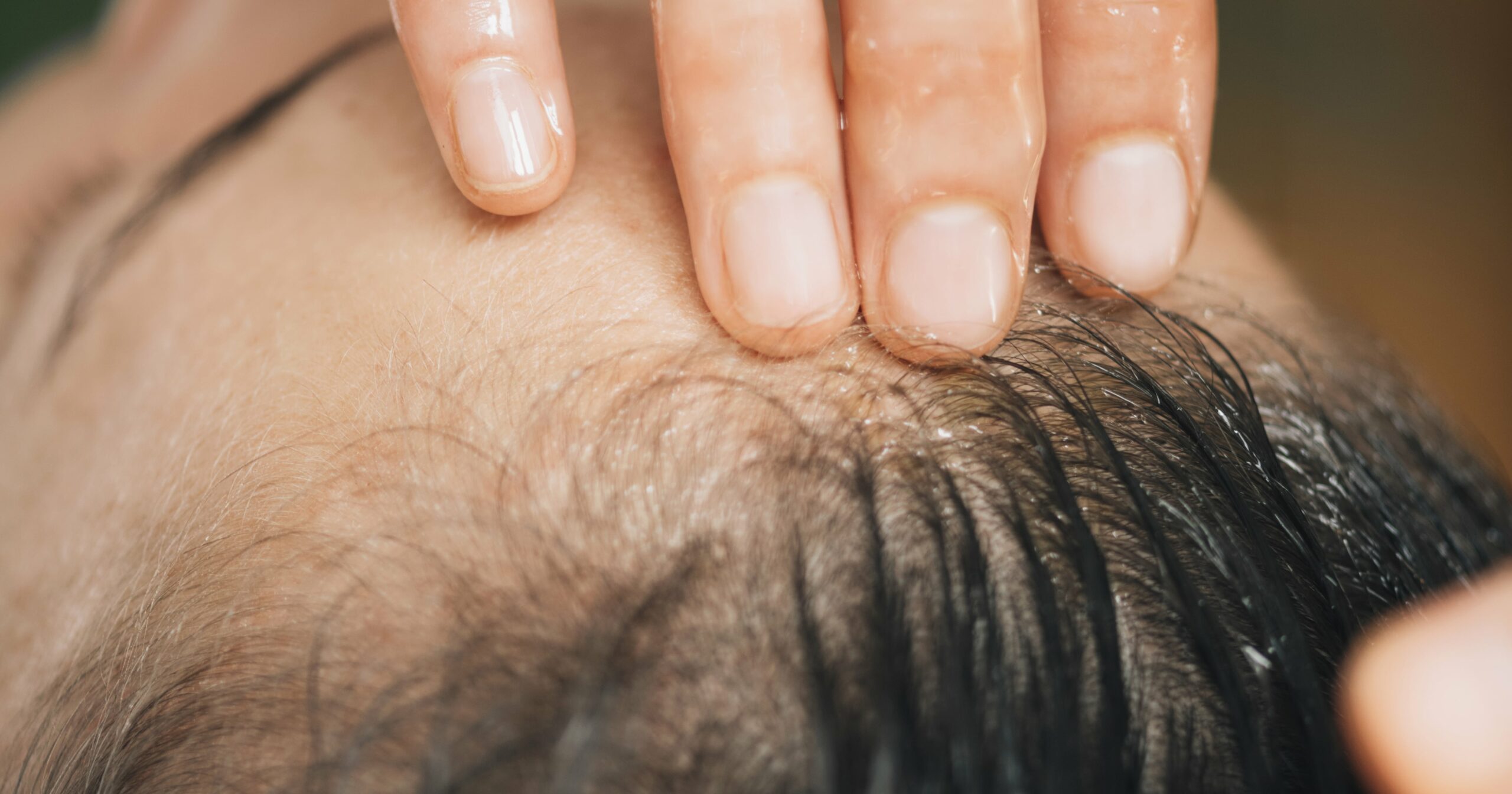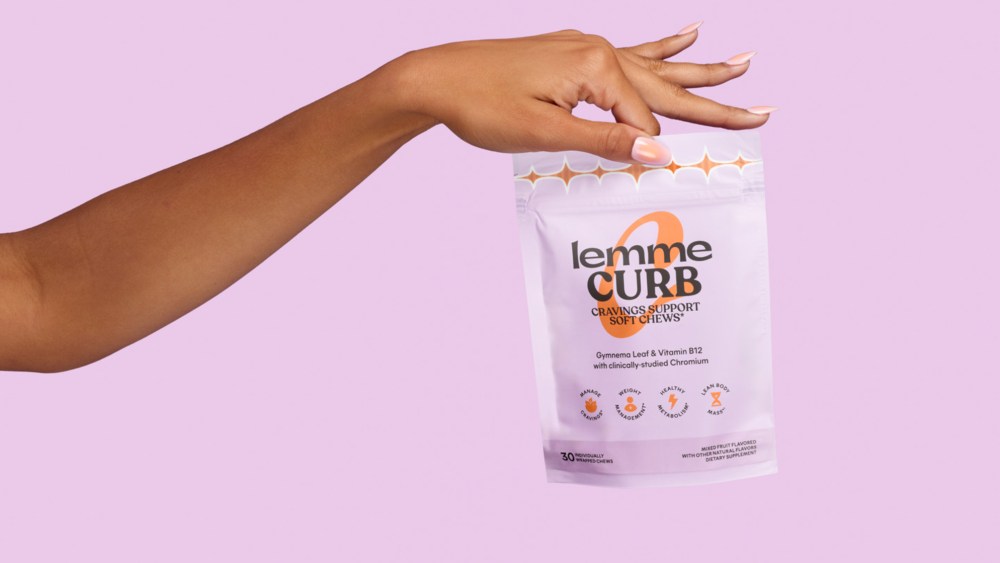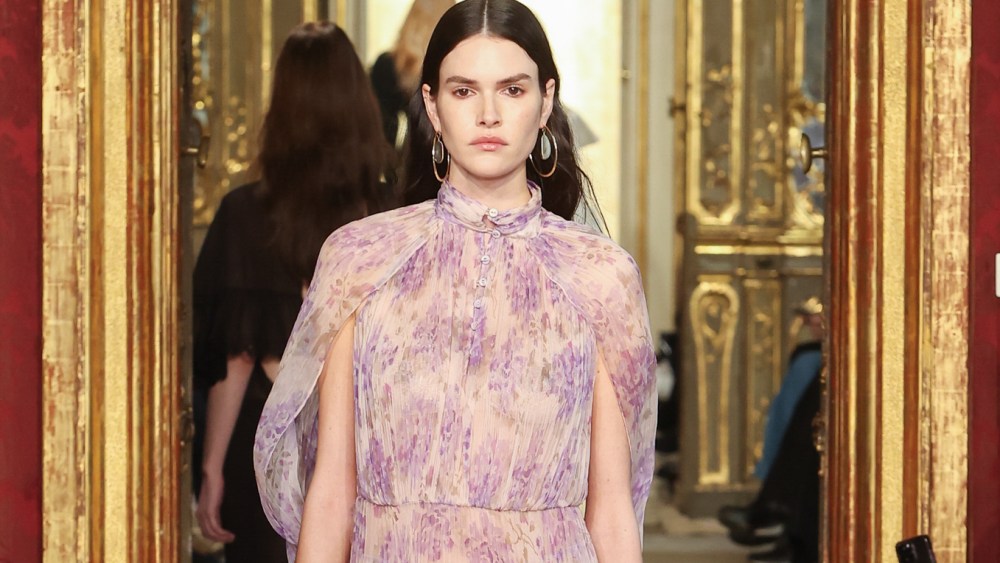MILAN — Mobile phone in hand, Aeron’s managing director Gábor Fodor tuned in for a video call earlier this week directly from Budapest’s Andrássy Avenue shopping street, offering a glimpse of the city’s historic area that the brand has zeroed in on to open its first flagship.
The contemporary Hungarian label, which is part of the Vanguards Group’s portfolio along with hip brands Nanushka and Sunnei, is getting serious about its retail approach, with the goal to balance a distribution footprint that so far has relied more on the wholesale channel.
“In a few years we want to grow the direct-to-consumer channel,” said Fodor, acknowledging the complex momentum wholesale is experiencing at large. “[Retail] distribution gives you ownership of your stock and we can do what we want, so it’s a good thing to have… There are brands that are more naturally DTC driven, but Aeron was not. It was a classical wholesale-driven story. It grew from half a million euros in revenues to 3 million euros having wholesale… And now that we saw that it [doesn’t] grow automatically because the times are not right, we needed to add our own channels,” said the executive after offering a virtual tour of the store.

The shop in Budapest is part of a 150-year-old townhouse originally designed by Hungarian architects Miklós Ybl and Emil Ungár. In sync with the brand’s clean aesthetic, the space is dominated by minimal furniture and subdued colors, with a wood floor standing at the entrance while plush carpeting takes over as visitors advance to the changing rooms area, telegraphing a heightened sense of coziness and intimacy.
Envisioned in collaboration with interior designer Eszter Bertóty, the design concept is completed by a paneled mirror wall, travertine marble furniture, essential displays and racks in stainless steel and conical-shaped Apollo lamps from Swedish design brand Pholc. In addition to the brand’s ready-to-wear and accessories, the unit is set to showcase exclusive capsule collections as well as the work of select artists each season, starting with the inaugural collaboration with Leila Guïnnefollau’s glass and ceramic installation.

The opening follows a successful pop-up store Aeron installed in the city for a year to test the local market. “Before that, our community was usually served on this weekend pop-up private sales… They were notified four times a year when we dropped the new collection and they could check it out at the office,” said Fodor, underscoring the need to shift to a proper retail space to welcome a broader audience.
For the executive, strengthening Aeron’s presence in its hometown will enable the brand not only to enhance its visibility and engagement with local customers but tap into the increasing tourist influx the city is experiencing and that is boosted by the streak of luxury hotels openings.
“We are at the stage where there’s been a lot of developments in terms of hotels, but [as for] services such as restaurants, luxury stores, department stores — we don’t really have those yet, and I think there is a strong demand,” said Fodor.
Aeron wants to fill that gap while also improving its footprint. The brand was founded in 2012 by Eszter Áron and acquired by Vanguards Group in December 2019. Ever since the investment, the wholesale focus has been enhanced but challenging market conditions — from COVID-19 to war between Ukraine and Russia — led stockists to be more cautious in their buying, therefore negatively impacting Aeron’s business.

“Actually the brand had some financial difficulties and our reaction was to be less dependent on wholesale and focus a bit more on e-commerce and retail… We tried to build up other revenue channels,” said Fodor. “We still managed to grow but Aeron was really unprofitable business in 2022, in 2023 it was only a little unprofitable and this year it will be really close to breaking even,” said Fodor, who was appointed to helm Aeron in January 2023. Previously, he was portfolio director at Vanguards Group.
Last year Aeron reported around 3 million euros in total revenues, and the executive sees the company reaching 4 million euros in 2024, boosted by retail activations. His goal is to grow by double digits and reach the 10-million-euro milestone in three years.
Yet Fodor underscored the importance of keeping projections realistic. “There are few brands which can skyrocket, but it’s fair to say that the majority of the brands are not, but are still businesses that give jobs to people and produce aesthetic products… Maybe it’s not that exciting but it’s a decent business. We are aiming for sustainable growth and being a bit more financially sustainable,” he said, while acknowledging the challenge of following this path while being “part of a fashion group, which has investors whose priority is growth.”

Aeron’s wholesale network includes 30 to 50 stockists, depending on the season, said Fodor. Sales generated from the channel accounted for two-thirds of Aeron’s total revenues last year, but the executive said the goal is to reach a 50-50 split by next year at the latest.
On the wholesale front, the company has teamed with a few agencies to target and boost its performance in specific markets, especially the U.S. and Japan, in addition to Europe. Distribution in the U.S. is limited but the local consumers represent untapped potential for the brand, as they account for 30 percent of Aeron’s online sales. In Europe, Scandinavian countries and Germany are among the best-performing markets on Aeron’s e-commerce. As for Japan, Fodor said the label had a history of strong performance there before Vanguards’ investment and is aiming to reprise the trend.
Aeron is currently available at the likes of Galeries Lafayette Haussmann and the department store’s units in Bejing and Doha; Rinascente; KaDeWe; Alsterhaus; Oberpollinger; Illum NK; Bloomingdale’s, and Harvey Nichols in Dubai, to name a few. One of the strongest partnerships is with Harrods, where Aeron will unveil its refurbished corner in June.

Before that, this month the brand will open a pop-up in Vienna. This will be installed at House of Auster, a retail concept nestled in a residence in the city’s thriving district Neubau and conceived as a “shoppable apartment,” where everything from furniture and tableware to fashion and artworks will be available to purchase.
Another pop-up in Copenhagen will closely follow to coincide with Copenhagen Fashion Week, running Aug. 5 to 9. Aeron has staged runway shows during the biannual fashion event, marking its third time in January, but Fodor revealed it is sitting out the upcoming edition.
“We skipped last August and decided to do so this time too, because two fashion shows a year for a brand of Aeron’s size is not financially sustainable,” he said. For the executive, a retail activation is “a proper logical substitution” to still garner visibility while engaging a broader audience mixing industry insiders and end consumers.

The strategy is also aligned with Aeron’s sustainable ethos, which was enhanced when the label was relaunched with a new positioning and brand identity in 2022, as reported. On that occasion, the company flanked its seasonal collections with Zero, a permanent range of responsible leather and FSC-certified knitwear styles in a black hue and cut in timeless shapes.
Elsewhere, Aeron employs materials from sustainable sources, deadstock fabrics and upcycling processes. “But we also want to be a bit more conscious about how much we produce,” said Fodor, revealing that the brand will introduce a new tailoring line of only 150 pieces in September.
To be promoted using key personalities in the company’s community and art world, the range will be crafted from high-quality materials from Aeron’s archive and be priced around 1,000 euros for each suit. Fodor said half of the line’s sales will be destined to fund scholarships, whose recipients will be named by the ambassadors of the project.
“It’s more business model innovation rather than product innovation,” said Fodor about the initiative, which also resonates with the founder’s vision of “empowering fellow people around her, her staff and other women” and the one of the brand aiming to “make people feel empowered to achieve certain goals with a piece of clothing.”

In addition to the new line, Aeron aims to fully relaunch its handbag range next year, a category it momentarily overlooked to focus on ready-to-wear and other accessories such as jewelry. The revamp is connected to the retail-oriented shift, as Fodor underscored the need to fill the new physical locations and best serve customers by offering full looks since so far the brand’s wholesalers have focused on carrying just its ready-to-wear collections.



